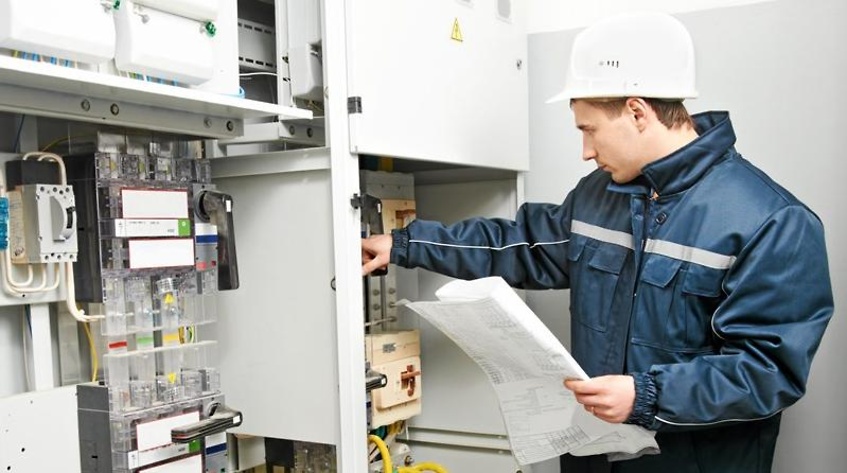Introduction
A Commercial EICR is a detailed Electrical Installation Condition Report for business properties. It checks wiring, sockets, circuits, and switchgear to ensure compliance with UK electrical safety laws. For landlords, business owners, and facility managers, a Commercial EICR is vital for safety, insurance, and legal compliance.
Electrical systems weaken with time. Loose connections, old wires, and overloaded circuits increase fire risks. A Commercial EICR finds these problems before they become hazards. Without it, workplaces may face electrical fires, power failures, or costly legal claims.
The Process of a Commercial EICR
-
Inspection of circuits, sockets, and switchboards
-
Testing for overloads and faults
-
Identifying worn or unsafe wiring
-
Checking compliance with UK safety standards
-
Issuing a full written report with recommendations
Common Issues Found in Reports
-
Damaged cables and insulation
-
Faulty fuse boxes without RCD protection
-
Overloaded sockets or circuits
-
Poor DIY electrical work
-
Outdated wiring in older properties
Residential EICR Certificate and Its Importance
While businesses need a Commercial EICR, homeowners and landlords need a Residential EICR Certificate. It ensures domestic electrical systems are safe for daily use. This certificate is essential for rented homes, as landlords must provide proof of safe wiring before tenants move in.
Without a valid EICR, landlords risk fines, penalties, and legal disputes. A Residential EICR also benefits homeowners planning to sell or renovate their property, as it shows compliance and boosts value.
Key Benefits of a Residential EICR Certificate
-
Protects tenants from electric shocks and fires
-
Provides legal cover for landlords
-
Identifies issues early to save repair costs
-
Increases home value and buyer trust
-
Ensures compliance with UK housing laws
How Often Should Homes Be Checked?
-
Rented properties: Every 5 years or at tenant change
-
Owner-occupied homes: Every 10 years
-
Older homes: Every 3–5 years, depending on condition
Fuse Box Installation and Upgrades for Safety
A safe electrical system starts with a modern Fuse Box Installation. Old fuse boxes cannot handle today’s heavy appliance loads. They often lack RCD (Residual Current Device) protection, which prevents fatal electric shocks.
At Landlord Certificate Checks, we specialize in replacing outdated fuse boxes with safe, modern consumer units. This upgrade is often recommended after a Commercial EICR or Residential EICR Certificate inspection.
Signs You Need a New Fuse Box
-
Fuse box has wooden back or ceramic fuses
-
No RCD switches present
-
Burn marks or overheating
-
Frequent fuse trips or power cuts
Benefits of a New Fuse Box
-
Meets current UK wiring regulations
-
Improves protection against electric shocks
-
Prevents overloads and electrical fires
-
Supports modern energy use safely
Legal and Compliance Requirements for EICR
A Commercial EICR is not optional for many businesses. The UK law requires landlords and employers to provide safe electrics under the Electricity at Work Regulations 1989. Failure to comply risks fines, closure orders, and invalid insurance claims.
Insurance companies also require EICRs for claims approval after accidents. Without one, you may be denied cover. For landlords, the Housing Act 2004 and 2020 regulations require valid EICR certificates for all rental properties.
Who Needs a Commercial EICR?
-
Offices and corporate buildings
-
Shops, restaurants, and cafes
-
Factories and warehouses
-
Schools, hospitals, and care homes
-
Rental commercial properties
How Often Should a Commercial EICR Be Done?
-
Offices: Every 5 years
-
Industrial sites: Every 3 years
-
Shops and retail spaces: Every 5 years
-
Public spaces (schools, care homes): Every 3 years
Choosing Landlord Certificate Checks for EICR Services
When it comes to Commercial EICR, Residential EICR Certificates, or Fuse Box Installation, choosing the right provider matters. At Landlord Certificate Checks, we provide experienced, qualified electricians, clear pricing, and fast turnaround times.
Why Businesses Trust Us
-
Qualified NICEIC-approved electricians
-
Transparent pricing with no hidden costs
-
Detailed and easy-to-read reports
-
Emergency call-out services available
Why Landlords Prefer Us
-
We handle inspections quickly between tenancies
-
Reports meet all legal requirements
-
We offer fuse box upgrades and repairs
-
Trusted nationwide by landlords
Frequently Asked Questions About Commercial EICR
1. How long does a Commercial EICR take?
It depends on the property size. Small offices take a few hours. Large sites may take 1–2 days.
2. What happens if my property fails the EICR?
If issues are found, they will be coded as urgent (C1), potentially dangerous (C2), or improvement required (C3). Repairs must be done quickly.
3. Can I sell or rent without an EICR?
No. Without a valid EICR, you risk fines and cannot legally rent. Buyers also prefer homes with valid certificates.
Conclusion
A Commercial EICR is the foundation of electrical safety for businesses and landlords. It ensures compliance with UK laws, protects tenants and staff, and keeps insurance valid. Combined with a Residential EICR Certificate and fuse box installation services, it offers full protection for homes and workplaces.
Landlord Certificate Checks delivers expert inspections, upgrades, and safety solutions across the UK. Don’t wait until it’s too late—book your inspection today and protect your property, people, and peace of mind.









